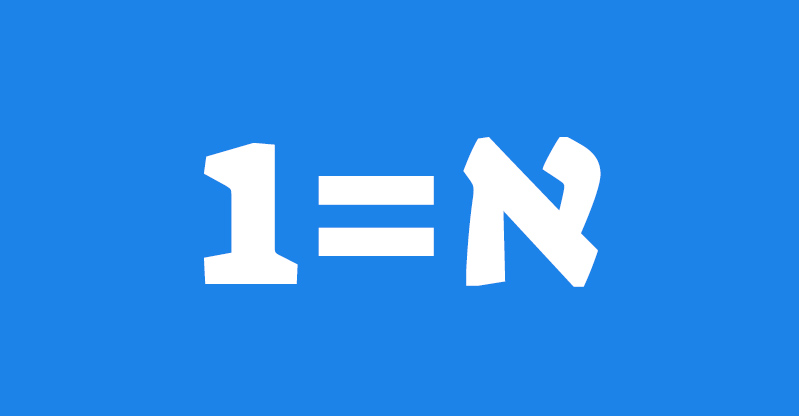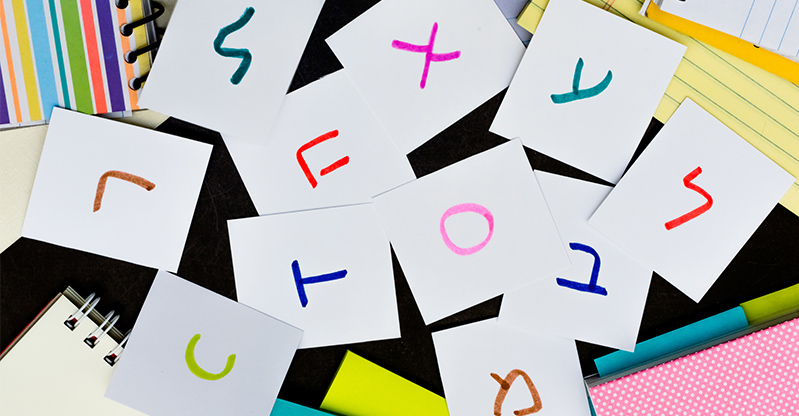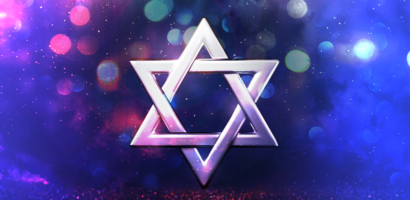Like a cosmic thread that connects everything. Like the description of God given by the praiseworthy philosopher Baruch Spinoza. Like the myth of the red thread connecting every single person with their own destiny. Like the chapters in the Torah that seem to be speaking about the current days we’re living in.
Indeed. Hebrew is such a deep language that we can find the weirdest, more interesting connections between the alphabet itself, the numbers, and even with the days of the week. Be prepared to be surprised. Just like in the Matrix, after you take the “red pill” of reading this article, there is no turning back.

Be aware! You might start seeing connections between everything, and at the same time, you will learn and improve your Hebrew; the red thread that connects everything will keep on doing its job.
Letters and numbers: The numerical value of the Hebrew letters
Did you know that there is a connection between numbers, letters and days in Hebrew? Did you know that as soon as you learn Hebrew you will be able to better understand the Kabbalistic theories of life? Did you know that the days of the week in Hebrew are also named after the letters?
Allow us to introduce you to the depth of Hebrew. In the next few paragraphs, you are going to learn something that you’ll be able to put into practice in almost any of our online Hebrew courses. But this first step will give you the chance to open your eyes to a wider, more connected reality. A reality where Hebrew gets even more interesting to learn than ever before.
What’s the connection between Hebrew letters, days of the week, and numbers?
You already know there’s a connection between all of these elements. When learning Hebrew, everything will be much clearer, but for now, this introduction might serve as a guide for when you’re taking the first baby steps in the Hebrew language.
Don’t get confused, we do have numbers in Hebrew, it is just that Hebrew letters also have a numeric association. But we don’t teach math at schools by saying that א + א = ב.
Take a look at some of the connections between Hebrew letters, the days of the week, and numbers (and some Hebrew mystical meanings too)

א: It isn’t only the 1st letter of the Hebrew alphabet, but Aleph also means Sunday and represents the first one of all numbers: The number 1.
ב: Yup, you are right. Bet is also Monday, and as you might have guessed, it also represents the number 2.
ג: The letter Gimel, besides also representing of the number 3, can also be used to refer to Tuesday, the 3rd day of the week in the Israeli calendars.
ד: Indeed. You guessed it right. Dalet, the 4th letter of the Hebrew alphabet also represents the number 4, and with it, Wednesday. The 4th day of the week.
ה: Hei represents the number 5, and also Thursday. This is one of the favorite days for young Israelis since the weekend starts on the Yom Hei. That’s a good reason to like this letter and number, isn’t? Let us know which one is your favorite day of the week.
ו: Oh, Friday, oh lovely Friday! The letter Vav also represents the number 6, bringing with it, a connection to the beginning of Shabbat. Yom Vav is Friday, and be careful if you are planning to spend 48 hours in Tel Aviv, many stores might be closed during Yom Vav, from 3 or 4 pm.
ח: Let’s jump to number 8. The letter Chet does not represent any specific day of the week, but it has indeed a numeric association attached to it. And it is number 8. Try not to forget this one, because we are going to show you a very nice relation between this letter, and the Yod we are talking about just below this paragraph. Are you ready? Let us explain…
Subscribe to our newsletter
Learn Hebrew slang, take a virtual tour across Israel, discover the best local food and so much more
י: The lovely letter Yod is one of the only vowels in the Hebrew alphabet. Yod represents the number 10, and what do you think about how it connects to the word Chai (which means life, but if you didn’t know that, it is time for you to join one of our courses)? Just put together the letter Chet we just talked about and this one. Which word appears? Yup! You’re right, it is Chai, and since one represents the number 10 and another one the number 8, it is a matter of math to give a concrete meaning to such a significant word.
It is time to learn Hebrew. Many more meanings are on their way!

You see? Learning Hebrew can be more than just learning a 2nd language. From it, you can grab a mystical side and understand things that go beyond our understanding of the material world we live in. Joining one of our Hebrew courses will enable you to open your mind to a new way of observing and interacting with our world. And of course, you’ll get a 2nd language that will open more than just one door. So check out our courses here, and let us know in the comments below which day of the week is your favorite one. Behatzlacha!
Oh! Just in case you were wondering. Saturday is Shabbat, no letter associated with this Holy day. We just call it by its name: Shabbat.







